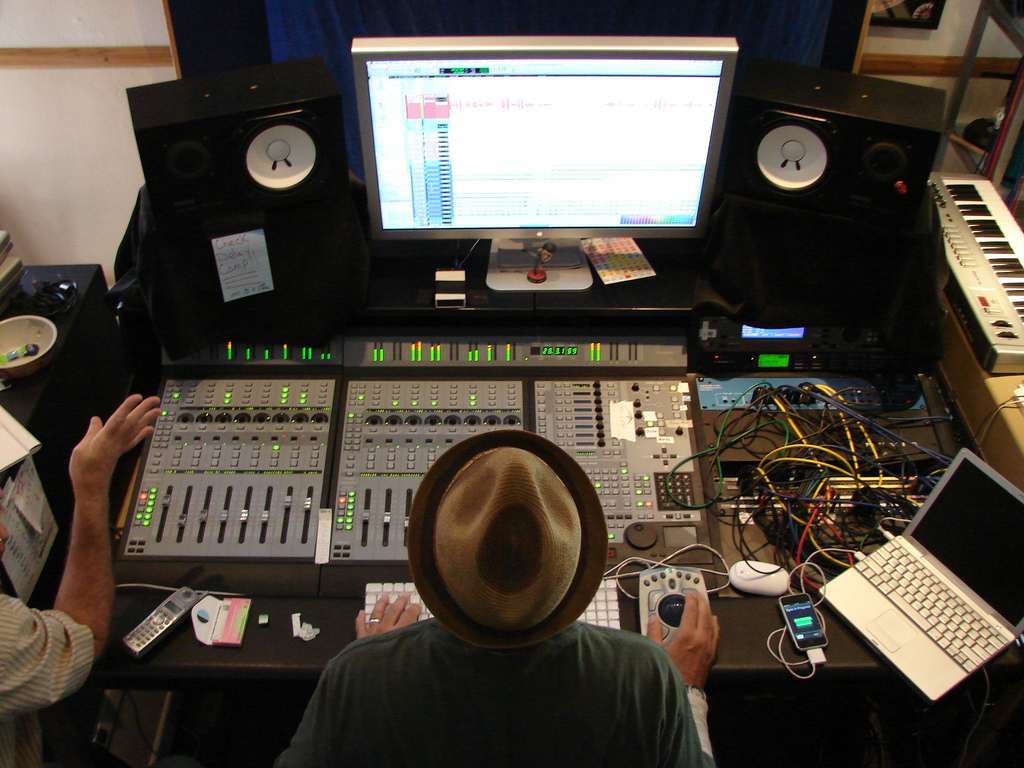<p style="text-align: justify;">Audio engineering is just one of many branches of the engineering discipline. It involves the recording, mixing, synthesizing, and reproduction of music in a variety of venues, such as recording studios, sports and concert arenas, films, and more. Audio engineers, also known as sound recording technicians, operate equipment to produce anything from sound effects to video using the latest in available technology.</p>
<p style="text-align: justify;"><img class="aligncenter size-Correct wp-image-10013" alt="A Quick Introduction To Audio Engineering" src="https://medusamagazine.com/wp-content/uploads/2013/11/AudioMixingPhoto-600x450.jpg" width="600" height="450" /></p>
<h3 style="text-align: justify;"><strong>Where You&#8217;ll Find Audio Engineers</strong></h3>
<p style="text-align: justify;">Whether in a recording booth, a studio, or back stage at a theater production, audio engineers are the backbone of any performance that needs sound. They can be found in a variety of industries, from motion picture and sound recording to the performing arts and video industries. The Bureau of Labor Statistics reports that the mean annual wage for this particular profession is about $55,000, with the top earning potential at nearly $100,000 per year.</p>
<p style="text-align: justify;">Audio engineers could work for record labels, or they may work in the publishing, gaming, licensing, voiceover, sound design, or commercial industries. They may help produce music videos, provide music composition for a movie, assist with live performances, set up sound equipment before a performance, provide studio maintenance, dabble in royalties, offer assistance in quality assurance and technical support, or work as sound library technicians. Some work independently, while others are employed at large production firms or major record labels.</p>
<h3 style="text-align: justify;"><strong>Schooling</strong></h3>
<p style="text-align: justify;">In order to get to become an audio engineer, one must attend the proper schools and take the appropriate courses, just like in any other major. Through your coursework, including production and engineering classes, you&#8217;ll learn all about microphones, compression, reverb and effects, mastering, equalizing, soundproofing, monitoring, and acoustics. You can even take online courses to hone your craft, such as musical sound and electronics, advanced acoustics, music and technology, electronic music composition, sound science, digital audio training, structural dynamics, and creative use of audio applications.</p>
<p style="text-align: justify;">Landing a job in the audio recording or sound engineering field often requires an internship at a studio, theater, production company, or television station to gain experience. Once you have the required amount of course work and on-the-job training under your belt, you can start networking to connect with a company that&#8217;s a good fit for you. Often, you can get a job at the place where you had your internship.</p>
<h3 style="text-align: justify;"><strong>Keep up to Date with Your Craft</strong></h3>
<p style="text-align: justify;">There are several local, state, and national organizations you can join to stay abreast of changes in the audio engineering field. The Audio Engineering Society is one such group &#8212; a professional society founded in 1948 that explores all aspects of audio technology. This international organization brings audio engineers, creative artists, scientists, and students from across the globe together to connect on new advances in the industry and to share research information. You can learn about other organizations by inquiring at your college or university, in the workplace, or through professional networking sites online.</p>
<p style="text-align: justify;">Audio engineers often have the freedom to structure their day how they like, especially if they work as a freelancer. Often times, work is done at night for performances, so your schedule may end up being quite flexible during the day.</p>
<p style="text-align: justify;">Byline</p>
<p style="text-align: justify;">Stanley Trufant, a freelance blogger based in United Kingdom, frequently contributes articles on audio engineering, mixing, musical technology and other related topics. Stan encourages other music lovers to check out the resources from a well-known UK based outfit.</p>
<p style="text-align: justify;">Image credit goes to Brian A Petersen.</p>

A Quick Introduction To Audio Engineering
